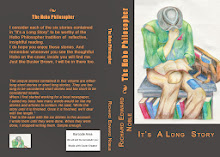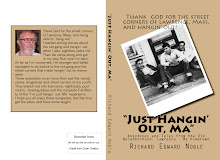 “Mark Twain’s Weapons of Satire” Edited by Jim Zwick Book Review By Richard E. Noble
“Mark Twain’s Weapons of Satire” Edited by Jim Zwick Book Review By Richard E. Noble As the old joke goes about the more one reads, the more he realizes how little he knows – so does it seem with Mark Twain.
I’m sure that there are many out there today that are unaware that the United States had a war in the Philippines in the early 1900’s. Actually the war in the Philippines was a part of the war that we called “the Spanish American War.”
That is the war that Hearst and Pulitzer are so famous for promoting.
Do you remember the Maine?
Well, in any case, as a part of that war Dewy defeated the Spanish Fleet over in the Philippines. The Spanish really weren’t all that challenging to defeat as I read in my history books but that victory then led to a ground war of occupation in the Philippines.
The United States’ part in this occupation, in every account that I have read thus far, is a horror story.
If one takes the time to research this war one will come upon pictures of Nazi-type mass graves and disgraceful Mai Lai type atrocities with the American army under some famous or notorious generals as the perpetrators.
One was Arthur MacArthur, father of the famous Douglas MacArthur.
Another was a General Frederick Funston who it seems indirectly called for Mark Twain to be hanged for treason.
Another was General Leonard Wood, a Rough Rider and Teddy “good buddy” who benefited greatly from his association with the famous war-hero president. He was appointed Governor of Cuba and then governor of the Moro Province in the southern Philippines.
Mark Twain became the head spokesperson for an anti-war group called “The Anti-Imperialist League.”
Some of the writings in this book were not published while Mark Twain was alive and there are several that were never published at all – until, of course, their inclusion in this book.
If you are a Mark Twain buff you know that Mark Twain was more than just a humorist and that he had many strong likes and dislikes.
He was not a fan of organized religion.
He was not a fan of the Bible.
And if you read some of his writings that have been published since his death, he may not have been much of a fan of God altogether.
He didn’t think much of the Boer War or Winston Churchill and he was adamantly opposed to America’s Imperial policies under president McKinley and Teddy Roosevelt.
He was not all that keen on McKinley or Teddy personally either.
On the other hand, though he never has said directly what he thought about the Civil War he was very admiring of General Grant.
In fact, Mark Twain published Grant’s Memoirs for him and made sure Mrs. Grant got the proceeds.
He wrote a funny little piece about his part in the Civil War but shortly thereafter he took Horace Greeley’s advice to young draftees and went “West Young Man.”
He clearly admired the Young Filipino hero and revolutionary Emilio Aguinaldo. Since we were at war with the revolutionary insurgents in the Philippines, to be admiring of Aguinaldo was comparable to Jane Fonda admiring Ho Chi Mm during the Viet Nam conflict. And many Americans in Twain’s day felt exactly that way.
Mark Twain says some very anti-American stuff in this book.
He was not one that favored the “My County Right or Wrong” slogan. He had some extremely negative things to say about patriotism and those who use it and the American Flag to spew vindictiveness and hate and lies and positive war propaganda. To be quite honest he says some things in this book that would have Jane Fonda blushing.
So if you have always considered Mark Twain as the all American boy, pure red, white and blue rah, rah, rah, and a true replica of what it is to be a real patriotic, god-fearing, American, you may have some re-evaluating to do here.
It may be that in the not too distant future poor, old Mark Twain will be going into the right-wing trash bin along with other notables like Tom Paine, Charles Dickens, Victor Hugo, Thomas Jefferson and of course Franklin Delano Roosevelt.








































